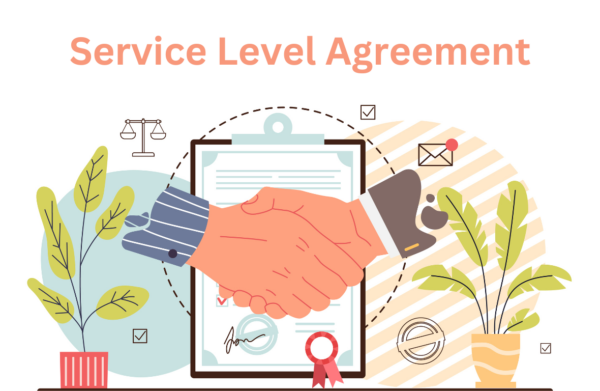Brief Information about Service Level Agreement (SLA)
A Service Level Agreement (SLA) is a contractual agreement between a service provider and its customer, outlining the terms and conditions of the service provided. In the realm of VPN services, SLAs serve as crucial documents that define the quality of service, performance metrics, and responsibilities of both parties involved.
Detailed Information about Service Level Agreement (SLA)
A Service Level Agreement (SLA) in the context of VPN services is a formal agreement between the VPN provider and its users, establishing the standards of service delivery, uptime guarantees, support availability, and other pertinent factors. These agreements ensure transparency, accountability, and reliability in the provision of VPN services, which are essential for users seeking secure and efficient online connectivity.
Detailed Analysis of Key Features of Service Level Agreement (SLA)
Key features of a VPN Service Level Agreement include:
- Uptime Guarantee: Defines the minimum percentage of time the VPN service should be operational.
- Performance Metrics: Specifies parameters such as bandwidth, latency, and packet loss.
- Support Availability: Outlines the support channels available to users and response times.
- Security Measures: Details the security protocols and encryption standards employed by the VPN service.
- Service Maintenance: Describes planned maintenance schedules and procedures for minimizing service disruptions.
Types of Service Level Agreement (SLA)
There are typically three types of SLAs in VPN services:
| SLA Type | Description |
|---|---|
| Service-Based SLA | Focuses on specific services provided by the VPN, such as access to servers, encryption, and protocol support. |
| Customer-Based SLA | Tailored to meet the unique requirements and expectations of individual customers or user groups. |
| Multi-Level SLA | Combines elements of both service-based and customer-based SLAs to accommodate varying service levels. |
Ways to Use Service Level Agreement (SLA)
Service Level Agreements in VPN services can be utilized in various ways:
- Ensuring Quality of Service: SLAs establish benchmarks for performance and reliability, ensuring users receive the expected level of service.
- Managing Expectations: Clearly defined SLAs manage user expectations regarding uptime, support, and security.
- Enhancing Accountability: SLAs hold VPN providers accountable for meeting agreed-upon service standards, fostering trust and transparency.
- Resolving Disputes: In case of service disruptions or breaches, SLAs provide a framework for resolving disputes and seeking remedies.
Problems and Solutions with Service Level Agreement (SLA)
Common problems associated with SLAs in VPN services include:
- Ambiguous Language: Vague or ambiguous language in SLAs can lead to misunderstandings and disputes.
- Unrealistic Expectations: Setting unrealistic service level targets may result in dissatisfaction among users.
- Lack of Enforcement: Inadequate mechanisms for enforcing SLAs may undermine their effectiveness.
These issues can be addressed through:
- Clear Communication: Ensuring SLAs are written in clear, understandable language to avoid misinterpretations.
- Realistic Goal Setting: Setting achievable service level targets based on the VPN provider’s capabilities and resources.
- Monitoring and Enforcement: Implementing robust monitoring mechanisms and penalties for SLA breaches to ensure compliance.
Main Characteristics and Comparisons
| Characteristic | Service Level Agreement (SLA) | Similar Terms |
|---|---|---|
| Definition | Formal agreement between service provider and customer | Terms of Service (ToS), Master Service Agreement |
| Purpose | Defines service standards, expectations, and responsibilities | Legal agreement outlining terms and conditions |
| Scope | Specific to the services provided by the VPN provider | Broadly applicable to various contractual agreements |
| Flexibility | May be tailored to meet the needs of individual customers | Generally standardized, with limited customization |
| Enforceability | Legally binding document, subject to penalties for non-compliance | Legally enforceable, but penalties may vary |
Perspectives and Future Technologies
Future developments in VPN services may lead to advancements in SLA management, including:
- AI-Powered SLA Optimization: Integration of artificial intelligence for dynamic SLA optimization based on real-time network conditions.
- Blockchain-Based SLA Contracts: Utilization of blockchain technology for secure, immutable SLA contracts with transparent enforcement mechanisms.
VPN and Service Level Agreement (SLA)
VPNs can be associated with SLAs in various ways, such as:
- Performance Assurance: SLAs ensure VPN providers deliver consistent performance in terms of speed, reliability, and security.
- Security Compliance: SLAs outline security measures and encryption protocols to ensure user data remains protected.
- Support Availability: SLAs guarantee timely and effective customer support to address any issues or concerns.
Links to Resources
For more information about Service Level Agreements (SLAs) in VPN services, please refer to the following resources:
- NIST Special Publication 800-146: Cloud Computing Synopsis and Recommendations
- ITIL® Service Level Management
These resources offer in-depth insights into SLA management practices and guidelines for ensuring quality service delivery in VPN environments.


